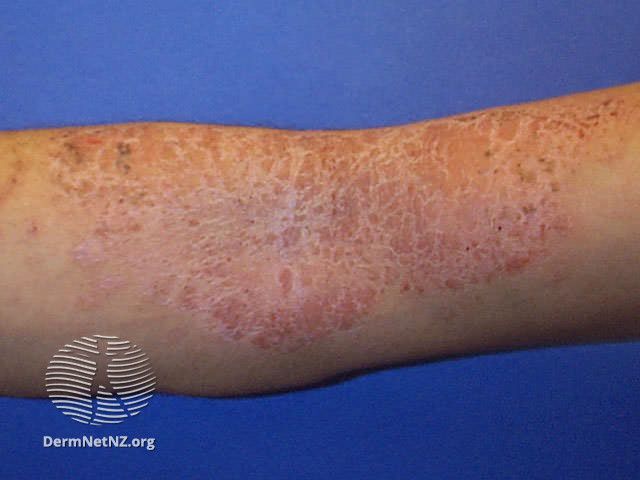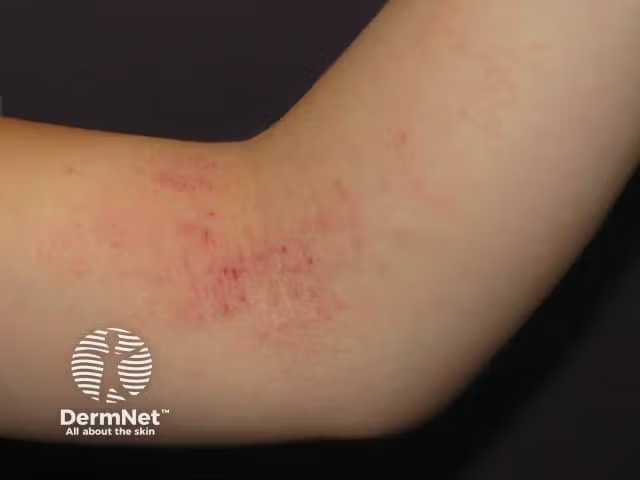- Case-Based Roundtable
- General Dermatology
- Eczema
- Chronic Hand Eczema
- Alopecia
- Aesthetics
- Vitiligo
- COVID-19
- Actinic Keratosis
- Precision Medicine and Biologics
- Rare Disease
- Wound Care
- Rosacea
- Psoriasis
- Psoriatic Arthritis
- Atopic Dermatitis
- Melasma
- NP and PA
- Skin Cancer
- Hidradenitis Suppurativa
- Drug Watch
- Pigmentary Disorders
- Acne
- Pediatric Dermatology
- Practice Management
- Prurigo Nodularis
- Buy-and-Bill
News
Article
Dermatology Times
Patient Perspective: Solutions for Relief After Years of Pain and Itch
Author(s):
Lisa Sanglay, FNP, and Lauren Miller, PA-C, interviewed a patient at IDS 2023 who used to have debilitating atopic dermatitis before seeing Sanglay for help and who prescribed upadacitinib.
Lisa Sanglay, FNP

At the 2023 Inflammatory Disease Summit in Las Vegas, Nevada, Lisa Sanglay, FNP, and Lauren Miller, PA-C, interviewed one of Sanglay’s patients about her atopic dermatitis (AD) journey. Sanglay is a certified family nurse practitioner at Thomas Dermatology in Las Vegas and began her career working alongside Fall Clinical founder, James Del Rosso, DO.
Sanglay and Miller, a board-certified physician assistant at Southern Skies Dermatology & Surgery in Oxford, Alabama, interviewed Sanglay’s patient, Jenifer Strobeck. Strobek came to see Sanglay in 2018 with debilitating AD on her hands, wrists, ankles, and feet. Her symptoms presented after her father passed away and never subsided. Strobeck first went to see her general practitioner for help and was prescribed prednisone, which temporarily cleared her skin, but her flares returned. She continued to see various dermatologists who prescribed steroids but experienced no lasting results.
“Nothing seemed to help. I was desperate... [I thought] ‘this isn’t even worth living if I’m going to be in pain all the time,’” Strobeck said.
Strobeck tried dupilumab (Dupixent; Sanofi, Regeneron) for a couple of weeks, but due to her fear of needles, she was not able to administer her injections at home.
After realizing dupilumab was not the ideal treatment, Sanglay recommended upadacitinib (Rinvoq; AbbVie) for Strobeck. Sanglay told Strobeck that upadacitinib was brand new to the market and something she believed could help Strobeck. At that time, Strobeck’s AD was so severe that she was desperate for help.
“[Lisa] said let’s try Rinvoq and I did. It was almost immediate; the itching disappeared. All of the cracks and lesions and pain I had under my arms, thighs, low back, and back of my head were just awful. But within a few weeks, I was clear,” said Strobeck.
Sanglay then discussed how she first evaluated Strobeck in 2018. She emphasized the importance of understanding the patient’s full medical history, allergies, impact on their quality of life, affected body surface area, history of medications, and any histories of infections or cancers.
“This gives me some time to think and to know what is the perfect option for this patient,” said Sanglay.
Strobeck explained how her AD was so severe before starting upadacitinib that she did not want to be seen in public, she could not wear any types of socks or shoes without pain, she had such extreme itching at night and had to sleep with gloves on, and she could not wash any dishes or grip any objects without extreme pain in her hands. Her main complaints she wanted to be improved when first seeing Sanglay were itching, inability to function, pain, and the discomfort of going out in public.
Strobeck commended Sanglay for the way she explained the risks and benefits of taking an oral JAK inhibitor and was very transparent with education and proposed lab monitoring.
According to Sanglay, one of the reasons she picked upadacitinib for Strobeck was that she knew it was a fast-acting agent, and that data had shown some patients experiencing relief within 48 hours. With how severe Strobeck’s AD was and the significant negative impact on her quality of life, Sanglay knew Strobeck needed relief fast. After starting Strobeck on upadacitinib, Sanglay saw her back in the office 6 weeks later for her first follow-up and to order more labs such as a complete blood count, comprehensive metabolic panel, hepatitis panel, HIV panel, QuantiFERON. These labs are Sanglay’s standard baseline testing before starting a patient on any oral JAK and during follow-ups.
A year and a half later after starting upadacitinib, Strobeck’s quality of life has greatly improved, and her skin has completely cleared with the exception of an occasional small flare that is gone within a day.
[Upadacitinib] is completely life-changing. The benefits completely outweigh any risks and I’m just thrilled and ecstatic about it,” concluded Strobeck.
Reference
Miller L, Sanglay L, Strobeck J. Patient interview. Presented at: 2023 Inflammatory Disease Summit; October 19, 2023; Las Vegas, NV.








